Just One Giant Hackathon against Covid-19
Published 5 May 2020 by Cherise Fong
JOGL, a global platform for collaborating on biotech, DIYbio and open science hardware projects to make our planet more sustainable, recently launched a series of micro-grants for projects directly tackling the Covid-19 crisis.
It all began with an international call for a DIY open source test for the novel coronavirus SARS-CoV-2 that causes Covid-19, launched by Just One Giant Lab (JOGL) on March 1, 2020. The call for collaborators attracted hundreds of respondents, prompting a weekly community call on Zoom and a dedicated workspace on Slack. The JOGL project has since evolved into a full-fledged program to fight the global pandemic with open source methodologies: OpenCovid19 Initiative.
Now with more than a thousand participants involved or seeking to get involved in over 50 projects (and counting), OpenCovid19 Initiative is currently awarding 4 rounds of micro-grants (of up to 3000€ each), thanks to JOGL’s partnership with the AXA Research Fund. Submitted projects are peer-reviewed and rated according to originality, clarity, design quality, feasibility and impact. Read on for a glimpse of some winners from Rounds 1 and 2.
Open PPE
When it comes to emergency response on the front lines of the pandemic, supplying personal protective equipment for those highly exposed individuals on duty has become a top priority in slowing the spread of the virus—beginning with the face mask. In Round 2, two separate one-woman teams rose to the challenge.
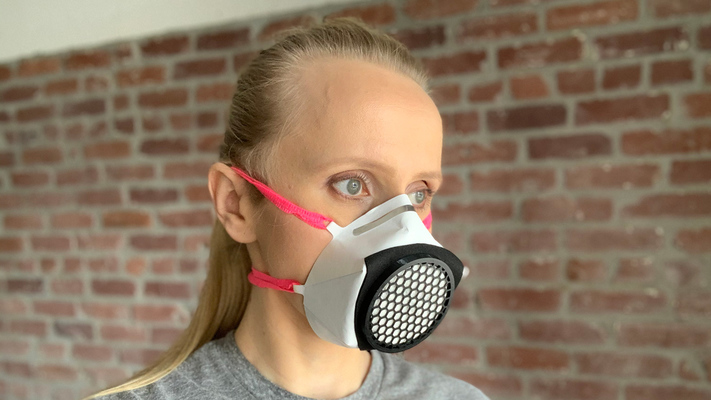
Meticulously prototyped in Los Angeles, the Basic Respirator is what designer-engineer Hunter Futo calls “the IKEA of N95 respirators”. The mask’s signature N95-compatible filter holder is 3D-printed from 9.5g of filament in one hour, can be laser or die cut, ships flat and assembles in minutes. The disposable mask itself weighs only 19g, folds into shape like origami and is made of Tyvek 1073B, a high-density polyethylene with a bacterial filtration rate of 98-99%.
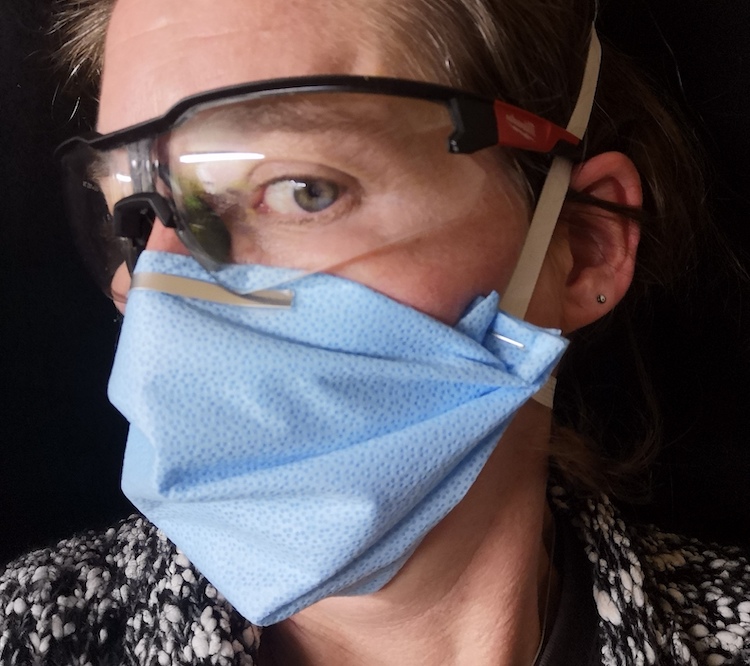
In Niagara Falls, Canada, Angela Peebles has crafted a low-tech, low-cost, single-use, no-sew, 4-ply face mask from a single square sheet of NWPP (non-woven polypropylene) Halyard H100 sterilization wrap. With an emphasis on DIY accessibility and easily sourced materials, the project lists required tools as “only scissors, stapler and a glue gun”. The featherlight NWPP mask, which can be cut, folded, stapled and glued in minutes, also folds flat and allows for personal adjustment with a flexible aluminum strip nose piece.
As with all protective equipment destined for medical environments, certification is crucial to safely scaling up manufacturing and distribution with local partners, so JOGL funding will help primarily in comprehensive testing for evaluation.
Open hardware
As hospital intensive care units are stretched to capacity in treating Covid-19 patients, medical equipment has become dangerously scarce.

In Paris, the dire shortage of syringe pump systems (SPS) to administer intravenous drugs was the impetus for the open source low-cost syringe pump project, specifically to be tested and validated in the short-term by Paris Hospitals Association (AP-HP). Based on the open source Poseidon SPS hardware specifications, the 3D-printed syringe pump operates on firmware based on the open source Smoothieware CNC control system and Smoothieboard. The prototype is currently ready for building by members of a growing international team, with testing to begin soon afterward.
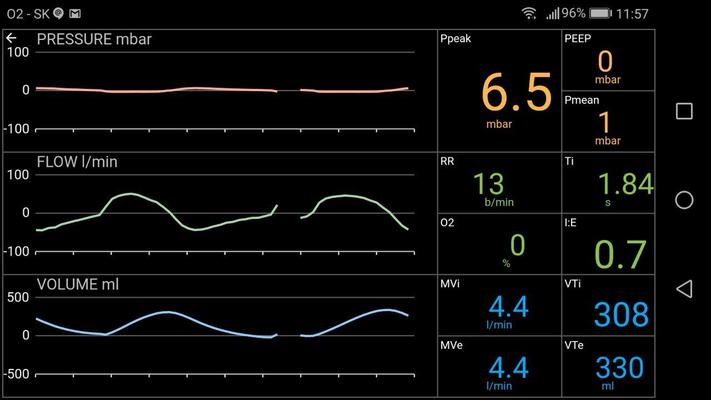
In Bratislava, another team is developing Breezy: a low-cost, open source and modular lung ventilator, featuring an Arduino-based measurement and statistical system that uses only 2 sensors to calculate 12 parameters. The device is accompanied by a mobile application to visualize the flow and pressure of each breath in real-time. In addition to participating in the Agorize Code Life Ventilator Challenge, the team is working to meet the professional requirements of the British Medicines & Healthcare products Regulatory Agency specification for a Rapidly Manufactured Ventilator System to be used in UK hospitals.
Biometric data analysis
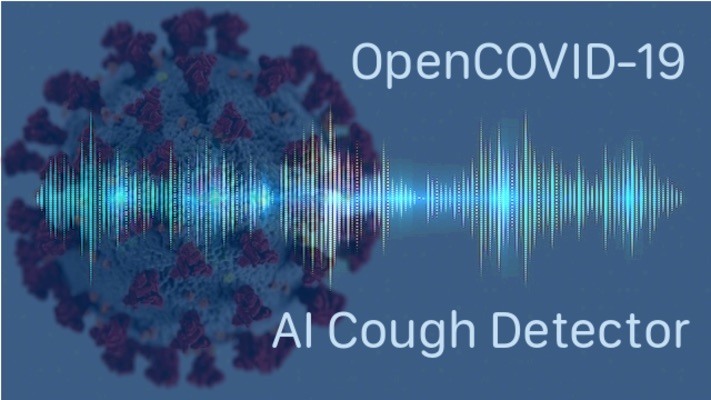
During a health crisis, access to medical consultation and testing becomes difficult, increasing the need for open diagnostic tools that anyone can use at home. Rigorously researched through previous studies of the sonic characteristics of human coughs, Argentinean Hernán Morales Durand’s CoughCheck App joins a budding number of applications that use artificial intelligence to offer real-time cough audio analysis as a possible indicator of Covid-19 infection. If coding this biometric diagnosis into a universally accessible smartphone app is the user-friendly goal, the project’s initial challenge is collecting enough samples to train the machine learning model while preserving privacy and controlling for accuracy.
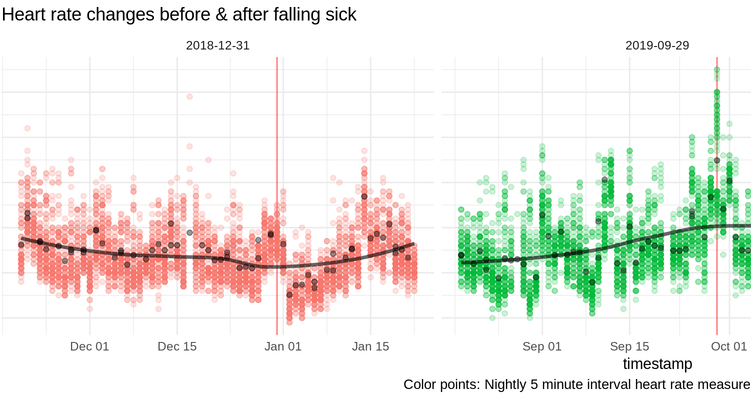
With the plethora of pandemic numbers, ratios and percentages inundating the mediasphere, it’s easy to feel alienated by the statistics. Yet our own body is a treasure trove of data that can be harvested, visualized and analyzed to help us comprehend the physiological signals indicating that we might be infected with an illness such as Covid-19. Co-instigated by Open Humans co-founder Mad Price Ball and self-proclaimed “Quantified Self nerd” Bastian Greshake Tzovaras, Quantified Flu is a research tool for aggregating, visualizing and analyzing raw sensor data from wearable devices (Fitbit, Oura Ring, Withings, Google Fit…). Collected data from self-tracking individuals both benefits the academic research community and empowers each contributor to better understand their own body.
Biotech experiments
As the spread of Covid-19 ebbs and flows around the world, comprehensive and accurate testing for the SARS-CoV-2 virus in populations and communities is crucial, not to mention the original challenge of the OpenCovid19 Initiative. Two DIYbio projects are tackling rapid detection methods through open-sourced experiments.
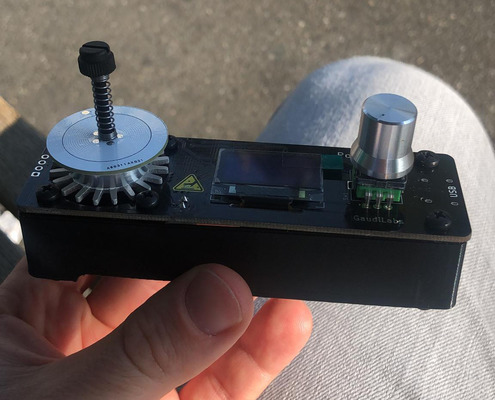
Based at the Starship Factory makerspace in Basel, Switzerland, the Basel Biohackers team is attempting to improve conventional RT-LAMP protocols for amplifying RNA in the most common method of real-time PCR testing. In particular, they are experimenting with a freeze-dried reaction kit that requires only the addition of the test sample and water, as well as a source of constant heat. Their core hardware is GaudiLabs’s user-friendly open source PocketPCR, a programmable Polymerase Chain Reaction (PCR) thermocycler.

In Seattle, 18-year-old Sophie Liu is leading a synthetic biology team at the SoundBio community lab to develop a low-cost variant of Mammoth Biosciences’s open source CRISPR-based DETECTR protocol—which recently received peer-reviewed validation—using engineered E. coli bacterial plasmids. Given SoundBio’s BSL-1 biosafety rating, the lab can work only with low-risk materials, so the test will also need to be verified with authorized patient samples before it can be widely implemented.
Understanding science outside the lab
As many students around the world are still confined to their homes or simply out of school, online and independent learning tools have taken the relay from conventional lectures in the classroom. And during this pandemic of misinformation and lack of access to information in disadvantaged communities, knowing the facts and understanding the science—especially about Covid-19—is all the more urgent.
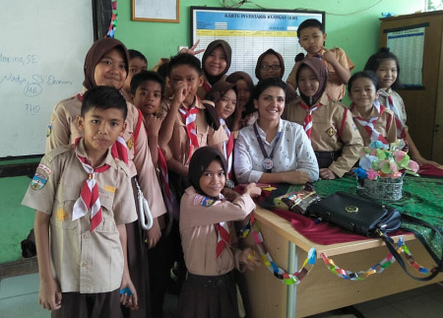
While existing online educational resources are multilingual and varied, virologist Eugenia Covernton of Lecturers Without Borders—a network of scientists who use travel opportunities to give free outreach-lectures in local schools in developing countries—has initiated a new series of webinars specifically dedicated to virology. These free online, interactive and recorded lectures are offered in English, Spanish and French to schools and universities, where students may also send questions in advance to address local concerns.
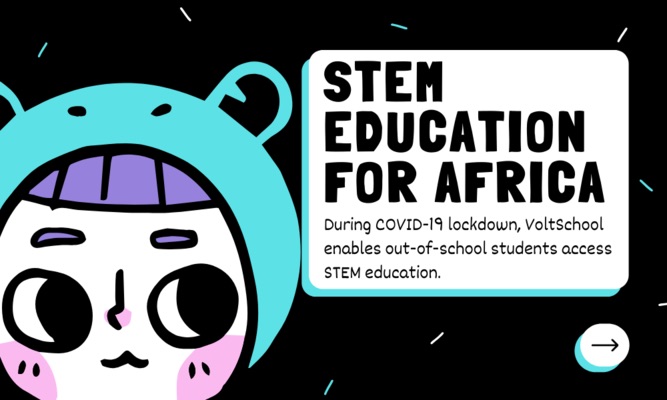
In Nigeria, Obasegun Ayodele of Vilsquare is developing an online STEM learning program for out-of-school students in West Africa based on the educational, high-tech, low-cost, low-energy, plug-and-play Volt Microscope and accompanying resource kit. The VoltSchool platform is currently in technical development, while the online curriculum will include video courses recorded by students experimenting with the microscope, supported by teachers and closely aligned with the approved science curriculum of the West African Examinations Council.
More information on OpenCovid19 Initiative
In our next article on JOGL activities, we’ll focus on projects from Rounds 1 and 2 dealing with rapid Covid-19 tests.
